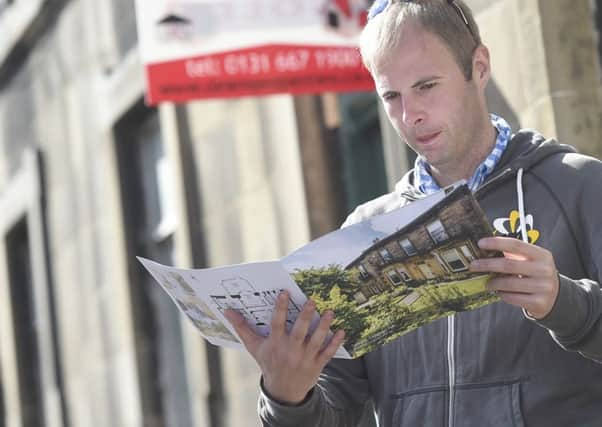Why we all want to downsize now


Their research revealed that the greatest gap between buyer enquiries and the number of properties available is for smaller homes, with 24 per cent more enquiries for smaller properties than for homes with three bedrooms or more.
The property website said developers now face a quandary on how to deliver more smaller homes, when larger homes tend to offer greater profit margins and attract more comfortable buyers.
Advertisement
Hide AdAdvertisement
Hide AdRightmove director Miles Shipside said: “Improving affordability requires the creation of more homes of the right type and in the right place, resulting in increased churn and more pricing competition. The challenge is to identify what is in demand and in short supply and build more of it.”
It’s not just first-time buyers who favour smaller properties of course; as the generation that has made the most from owning property in the last few decades in Britain pass working age they are more likely to cash in their gains to fund a lengthy and hopefully enjoyable retirement. A smaller property, perhaps even a flat, is a lot easier to lock up and leave, when you are spending your winters on a cruise.
We are all living longer and while pensions haven’t performed as well as property over the years, if you have a larger, valuable home, downsizing to a smaller one releases capital which can be used to live off, or to make a gift to children in order that they can get on the property ladder themselves.
It seems ironic that the younger and older generations, either side of middle age, might now be competing for the same properties. And where those just starting out may be on tight budgets and relying on begrudged mortgages from unhelpful banks, their grandparent’s generation can easily outbid them with cash.
Buy to let investors are also targeting smaller properties; apart from being more affordable for those with a small investment stake, the yields are higher and maintenance costs lower than for larger properties.
Running costs, in an age of wildly fluctuating energy prices are also an attraction in the smaller home. We may still dream of a classic period house, detached and in its own grounds, but footing the bill for heating it, particularly after the children have left home, is less desirable.
The rise in the popularity of eco-homes goes hand in hand with only wanting to have a home that is big enough with no wasted space.
But I think there is also an innate attraction to a small home, even if the other side of the coin is that the realities of outgrowing your living space can be frustrating. The TV series George Clarke’s Amazing Spaces celebrates economy of size in homes made out of sheds, caravans and treehouses while the popularity of decluttering self help books points to a growing feeling that buying a large home and filling it with possessions might not be the route to happiness.
Advertisement
Hide AdAdvertisement
Hide AdEven those who can afford a large home in the country often also have a pied a terre in the city, while some urban mansion dwellers play Marie Antoinette for the summer in a second home that is a blinged up former fisherman’s hovel by the sea.
All of which points to first time buyers facing stiff competition, as well as the demands - never asked of their parents - for high deposits and bomb proof repayments assurances. It is clear then that more needs to be done to incentivise builders to create the type of homes we want, not the type that make the most profit. Or is it too much to hope that half the country clamouring for a one bedroom flat will eventually mean a shift in developers’ thinking?
Meanwhile, a friend reports another problem of the larger property. Her attempts to get an HMO licence, so she can rent out her investment flat to students, has run up against opposition.
As a landlord you require an HMO license if you are renting to three or more unrelated people, but not if you rent a house to a family, however many members it has.
Apparently her stairs are too narrow to pass the fire safety requirements for an HMO license.
It throws up an interesting question - if stairs are too narrow for lithe 20 year olds to safely negotiate, why could she perfectly legally rent it to a family with small children and an elderly grandmother?